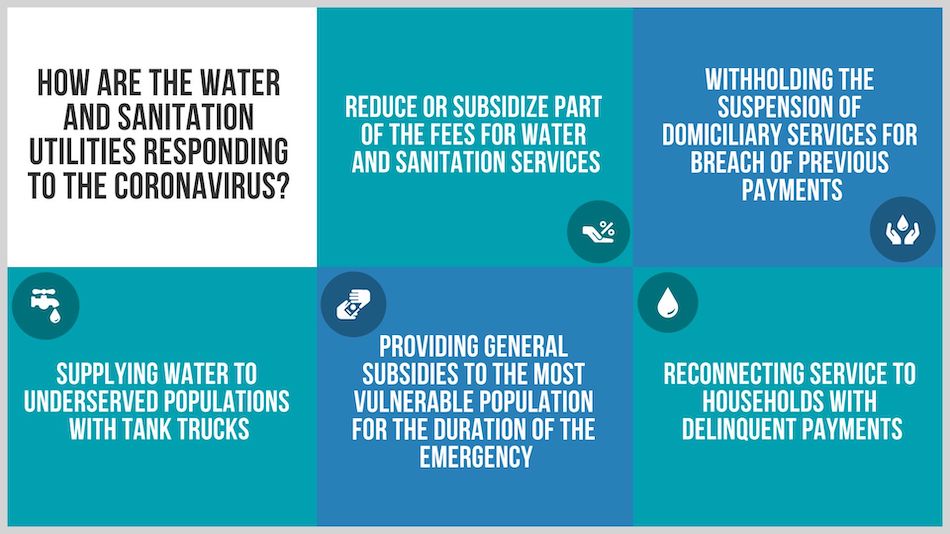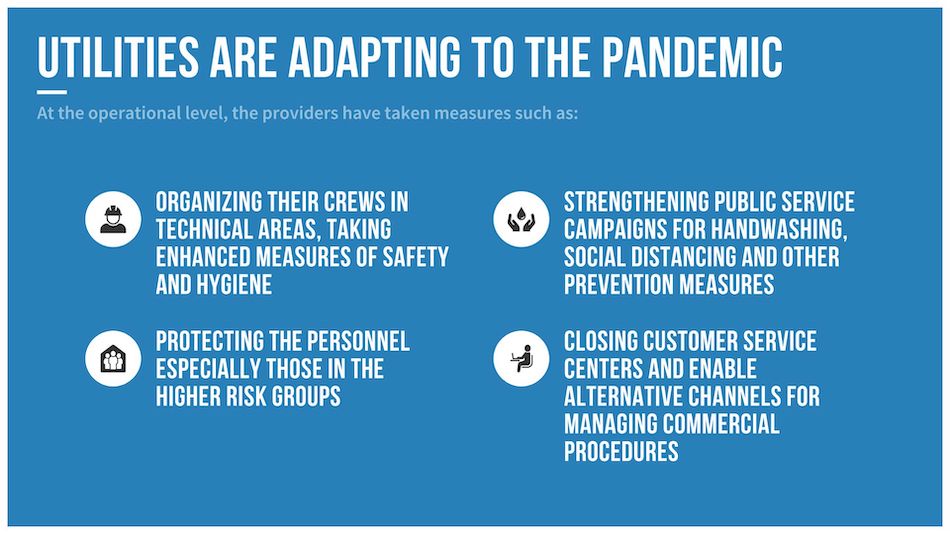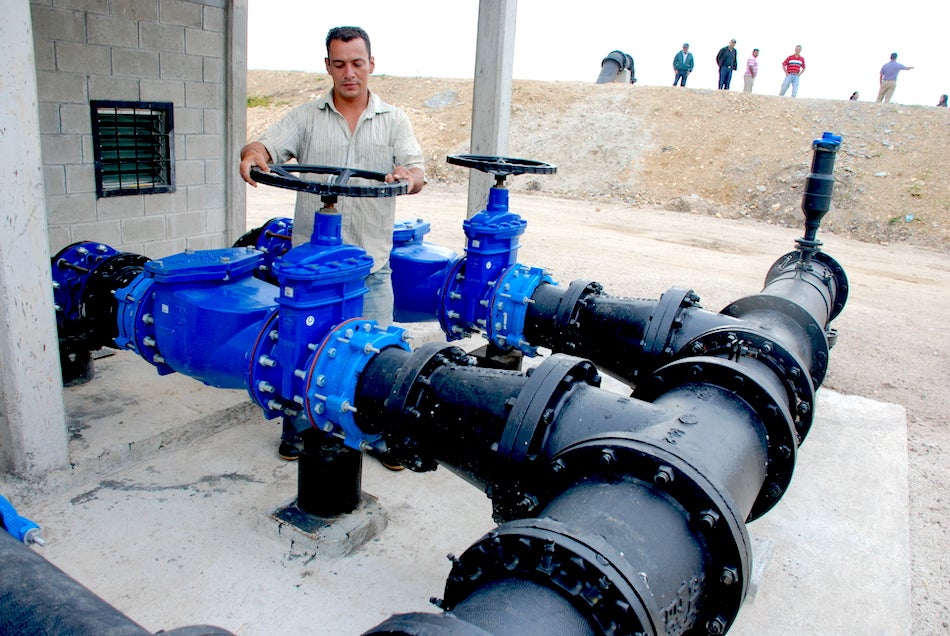Water utilities in Latin America and the Caribbean have taken extraordinary measures to ensure water and sanitation service in times of the coronavirus.
The coronavirus pandemic has reminded us all of the vital importance of drinking water, sanitation and hygiene conditions, and, above all, to remind us that we have a pending task to ensure that these services reach all of our citizens.
The water and sanitation utilities are key actors in any emergency plan, since they must ensure these services in acceptable conditions of continuity and quality to the entire population, especially the most vulnerable.
But the coronavirus pandemic poses a double challenge for operators due to social distancing measures to stop the virus from spreading. These measures can cause logistical limitations, shortages of supplies and personnel, as well as the reduction of their operating income streams from the collection of fees (non-payment, collection limitations, etc.). That is quite a challenge, taking into account that the work of providing water and sanitation is primarily face-to-face and dependent on teamwork.
Challenges abound during an emergency, but solidarity and creativity to deal with the situation also abound. The pandemic has made us understand that we can connect like never before, perhaps because we never needed to. This connection and the cooperation capacity it offers are being taken advantage of by the Latin American and Caribbean Network of Water and Sanitation Operators (WOP-LAC or Water Operators’ Partnerships) to share the challenges they face, and in particular to learn how other operators are managing the emergency and share their knowledge.

In fact, providers in the region have reacted very quickly to this pandemic using social and digital networks to exchange information among themselves in order to learn how to better manage the emergency against the coronavirus. For example, companies have been exchanging information on how they are organizing internally so that their employees can continue working in safety, how they are attending to vulnerable populations and rural areas, what impact this emergency is having on their income and their ability to operate. continuously.
On the other hand, several companies in the region have defined emergency measures aimed at the population, such as:
- Reducing or subsidize of their service rates for water and sanitation services
- Withholding the suspension of the domiciliary service for breach of previous payments,
- Reconnecting service to households with delinquent payments
- Supplying water to underserved populations with tank trucks,
- Providing general subsidies to the most vulnerable population for the duration of the emergency.

At the operational level, the providers have taken measures such as:
- Organizing their crews in technical areas, taking enhanced measures of safety and hygiene.
- Protecting the personnel included in the risk groups,
- Strengthening public service campaigns for handwashing, social distancing and other prevention measures.
- Closing customer service centers and enable alternative channels for managing commercial procedures.
The coronavirus pandemic has not only meant an enormous humanitarian and health emergency, but it has also allowed us to generate social, organizational, and new initiatives at the commercial and communicational level to serve the population, which is especially demanding in these moments, quality and affordable service.


Nice article. We at the WASH LAC Group (water , sanitation , hygiene in Latin America & Caribbean) are reaching out to partners in region for more enhanced cooperation & coordination. We would welcome a call sometime.